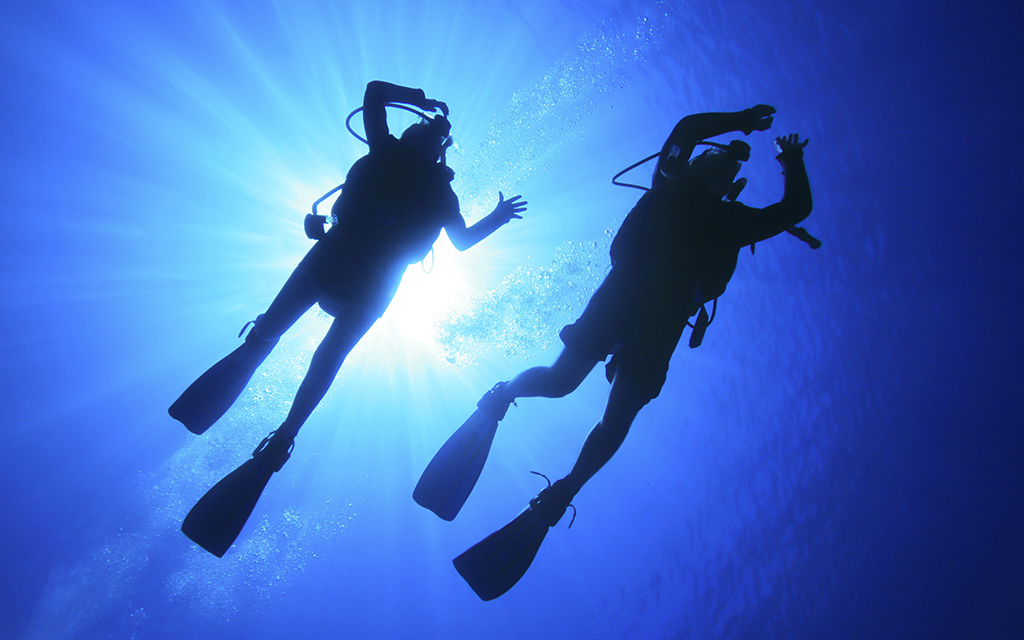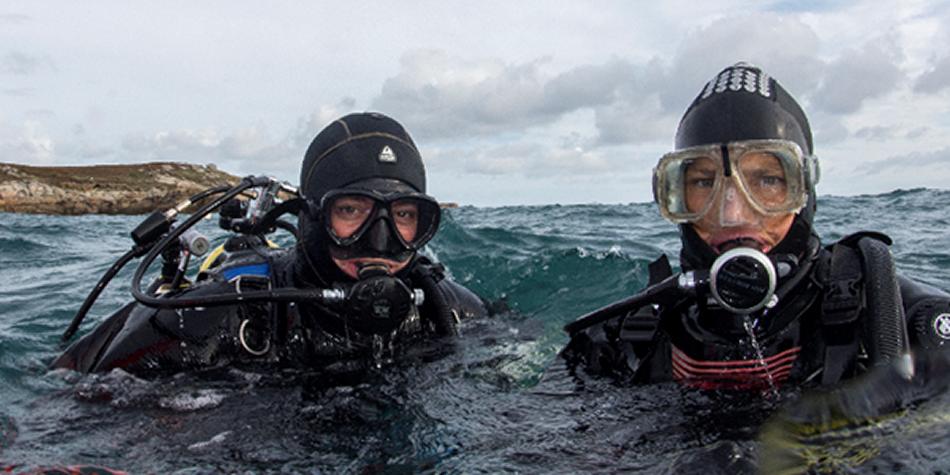
Sun safety is crucial for divers, not only to prevent sunburn but also to protect against long-term skin damage and potential skin cancer.
The obvious essential tool in a our sun safety arsenal is sunscreen, but there’s more we can do to protect ourselves from damaging our skin and long-term risks.
The diver’s double threat: UV exposure and water reflection
Whilst on a boat, beach or by the water’s edge preparing for a dive, enjoying the British Summer it’s easy to dismiss the risks of being exposed to direct sunlight. The water's surface reflects UV rays, intensifying exposure this can lead to severe sunburn, especially on areas not protected by drysuits or wetsuits –including nose, ears and scalp. Applying a broad-spectrum sunscreen with a high SPF can shield the skin from harmful UVA and UVB rays, significantly reducing the risk of sunburn and long-term skin damage.
Safe beneath the waves: reef-safe suncream
Conventional sunscreens often contain chemicals like oxybenzone and octinoxate, which can harm coral reefs and marine life. These substances contribute to coral bleaching and disrupt marine ecosystems in fresh and sea water. Divers can make a positive impact by choosing reef-safe sunscreens that use mineral-based ingredients such as zinc oxide or titanium dioxide. These alternatives provide effective sun protection without compromising the health of reefs and marine biodiversity. When shopping for suncream, look for labels indicating reef-safe formulas to ensure your sun safety practices are environmentally friendly.
Surface intervals: regularly apply suncream
To maximise protection, apply sunscreen at least 15-30 minutes before sun exposure. This allows it to fully absorb into the skin. Make sure to cover all exposed areas, including often-overlooked spots like the back of the neck, ears, and the tops of feet.
Remember to reapply suncream after diving, sweating, or towel drying, as these activities can reduce its effectiveness. Think about keeping a small bottle of sunscreen in your dive bag for easy access throughout the day.
Beyond the surface: additional sun safety measures
While suncream is a vital component of sun safety, you can take additional steps to protect yourself. Wearing UV-protective clothing, wide-brimmed hats, and polarized sunglasses can further reduce UV exposure. Seeking shade during peak sun hours and kitting up in shaded areas where possible and staying hydrated are also important practices.
Will’s story
Applying reef-safe sunscreen and adopting other sun protection measures can prevent painful sunburns, reduce the risk of skin cancer, and protect the marine environment.




